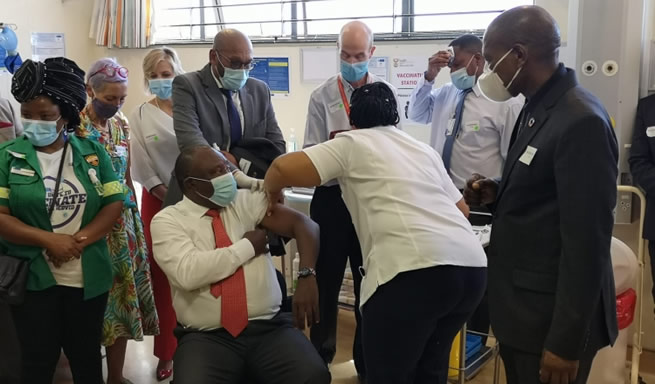Massive Covid-19 third wave similar to that of India to hit South Africa very soon: Professor warns Mzansi

At the current rate, SA is at risk of going down India’s Covid-19 deadly route, with experts saying SA has all the hallmarks of large gatherings, more variants and poor preparation.
This comes in the backdrop of the National Institute of Communicable Diseases (NICD) Covid-19 modelling consortium warning of a third wave in the report update released yesterday.
The update shows that SA is likely to experience a third wave that peaks below the second, provided there are no new variants, with new cases cresting two to three months after transmission begins to increase.
Though the consortium provided no estimate on when the third wave was likely to hit, experts believe it could be end at the of May, into June.
“Unfortunately, I do fear that we will go into a third wave. The vaccine roll-out has been extremely slow, mainly due to the fact that we just do not have the vaccines in the country,” Professor Glenda Davison, head of the biomedical sciences department at the Cape Peninsula University of Technology, said.
She said infection rates were currently low but that complacency, leading to large gatherings, will result in the spread of the virus.
Davison said the current proposed vaccine roll-out plan was not bad, but accessing the vaccines was problematic.
“In this aspect, I believe we could have done better,” she said.
Davison said the situation in India was tragic. Despite the country being one of the biggest manufacturers of vaccines, the number of the population who have received the vaccine was low.
“This wave was started by large events with many people not adhering to the prevention methods. The chance of this happening in SA is high and, if I examine the statistics, some provinces have already had increases in infection rates.
“We cannot become complacent and the vaccine roll-out should now be our priority,” she said.
Stellenbosch University epidemiologist Dr Jo Barnes echoed Davison’s sentiments, saying her assessment was that SA was at serious risk of following in India’s footsteps.
“Many of the factors causing problems in India are developing or already in place for us as well: more transmissible local variant that developed, late development of roll-out plans, government yielding under pressure to allow larger gatherings, poor procurement of vaccine stocks, poor preparation for essentials like oxygen and medicines, very bad healthcare system, very poor communication with the population regarding the status of the pandemic over time and irrational control measures – the list goes on” she said.
Barnes said these were ideas propagated by the government and politicians, leading to people ignoring all sensible precautions.
“Denial is Covid-19’s best friend. The virus invades an area in a stealthy manner and by the time the first cases appear, it is too late to stop the spread,” she said.
Barnes explained that since viruses mutate regularly, with some with potential to make people more ill or to transmit more easily, more variants should be expected.
“We need to stop this mind-set that soon we will be back to ‘business as usual’. We have to learn to cope with the virus while science works on treatment and prevention. We have made remarkable strides, but we are not yet out of the woods,” she added.